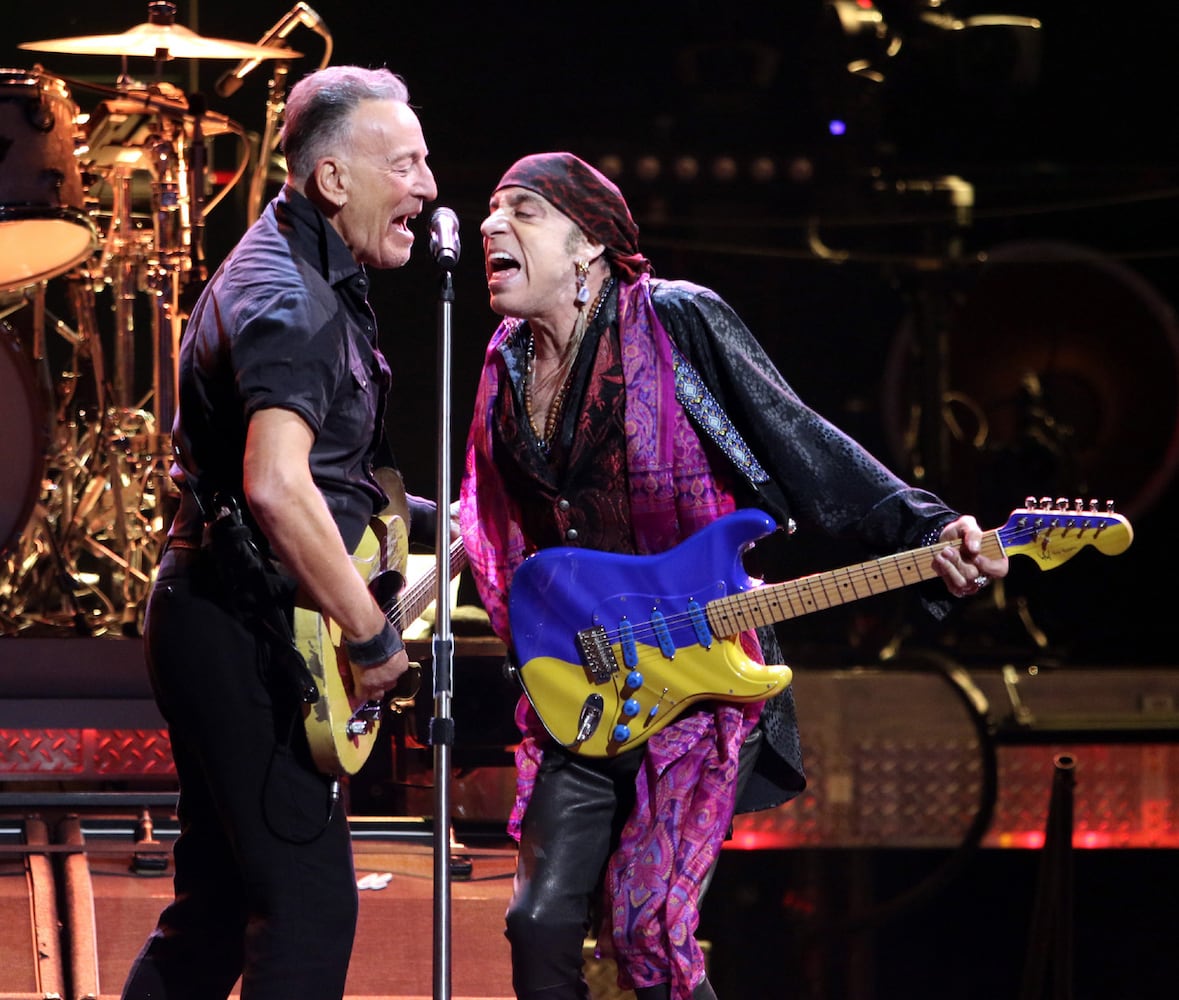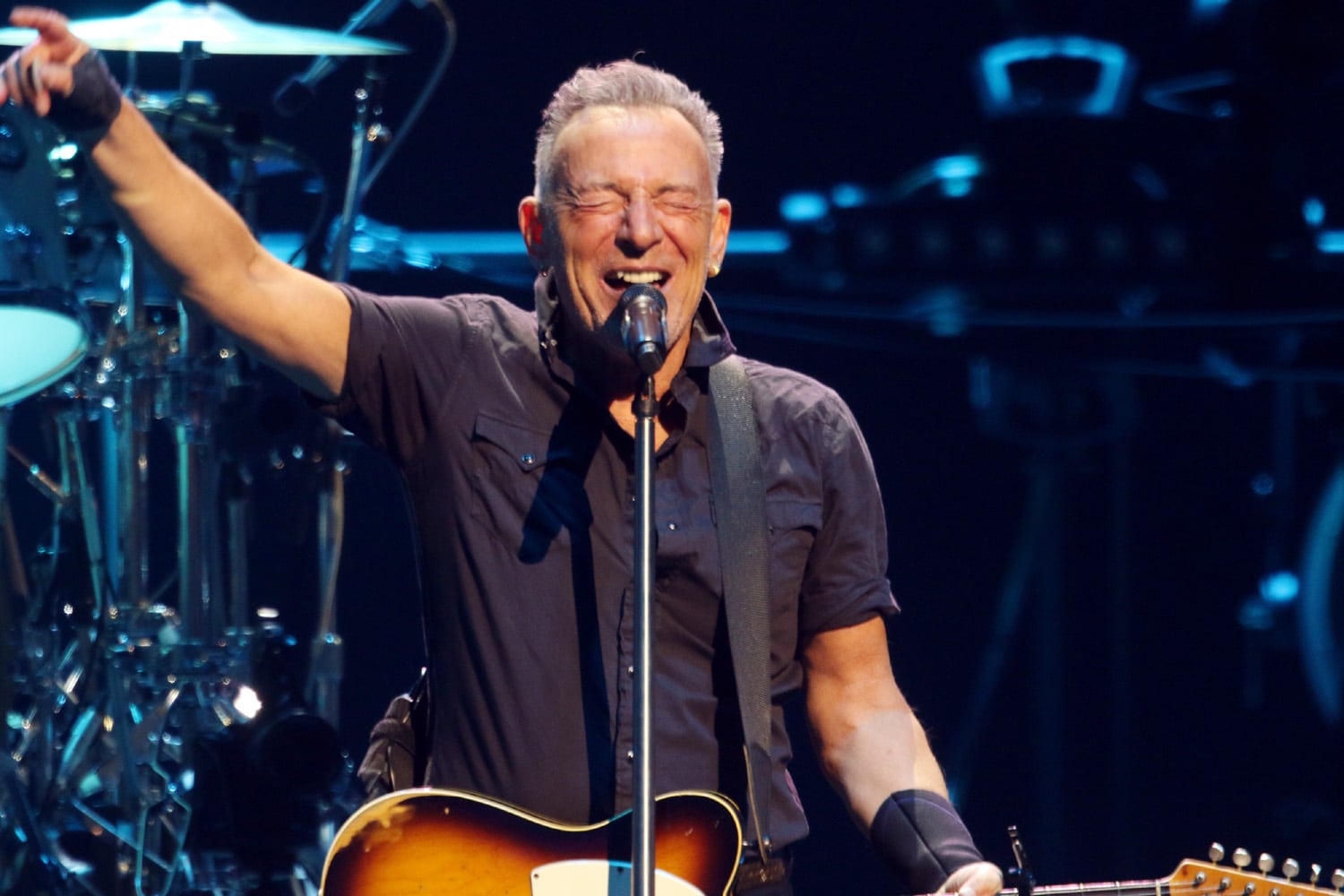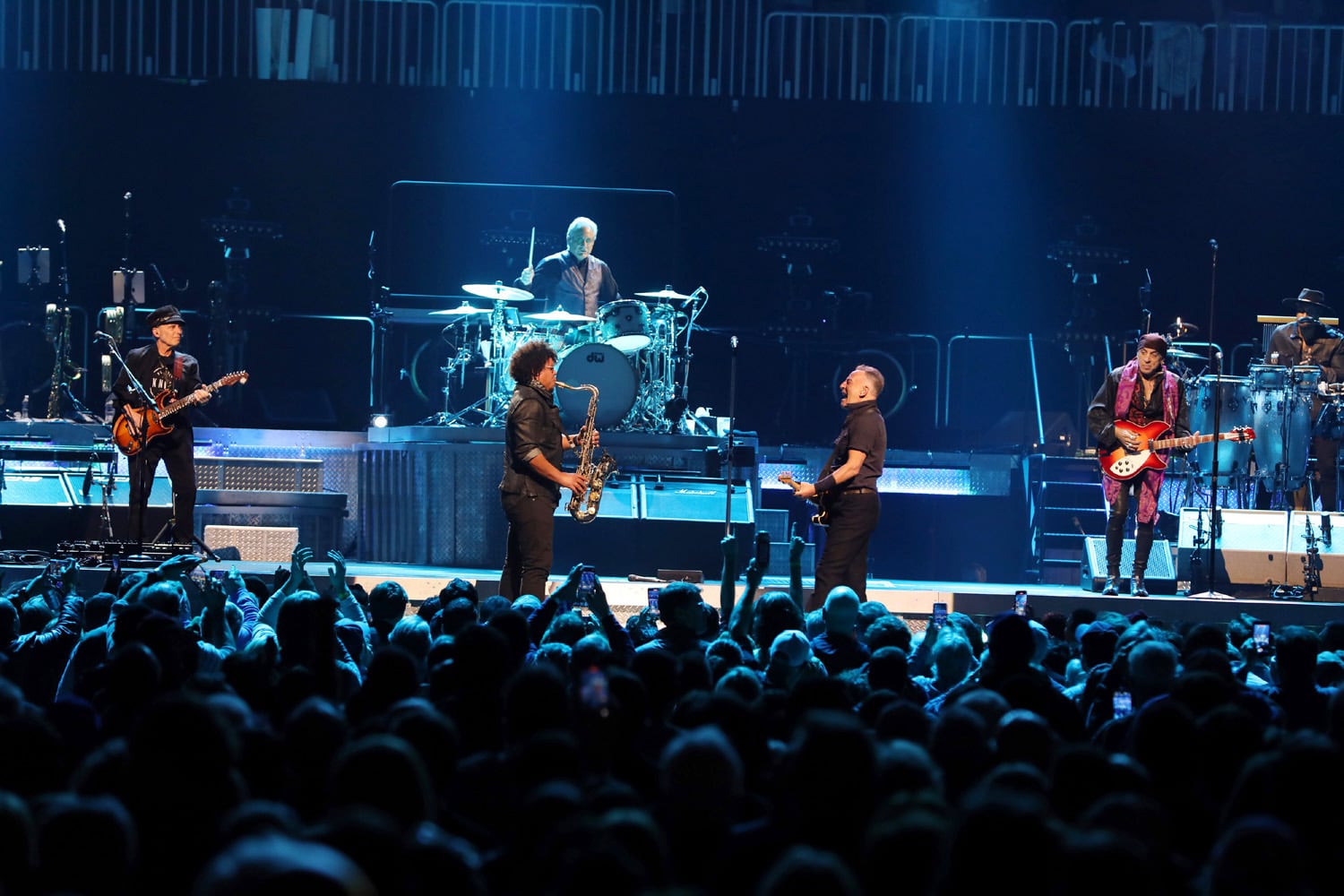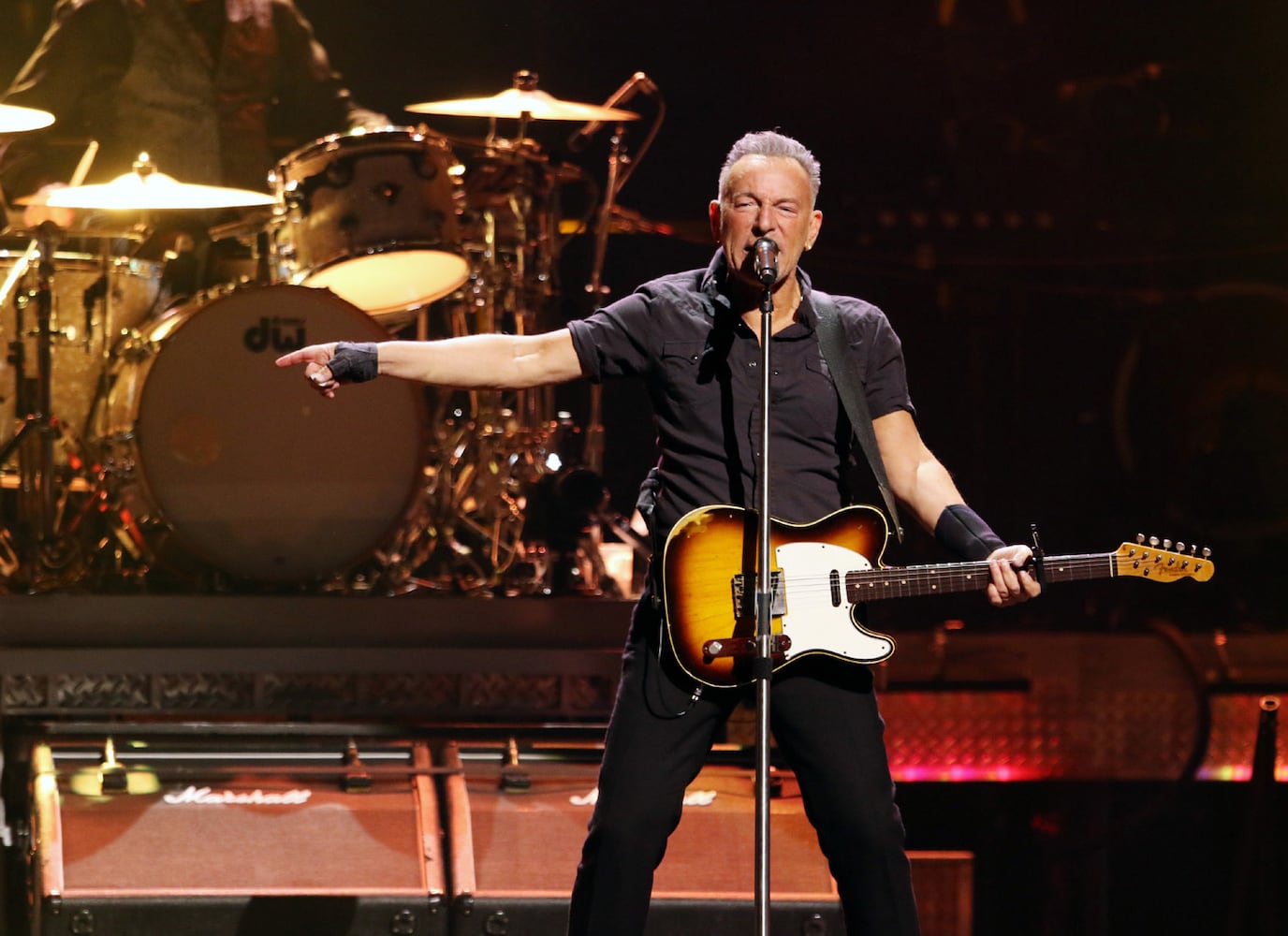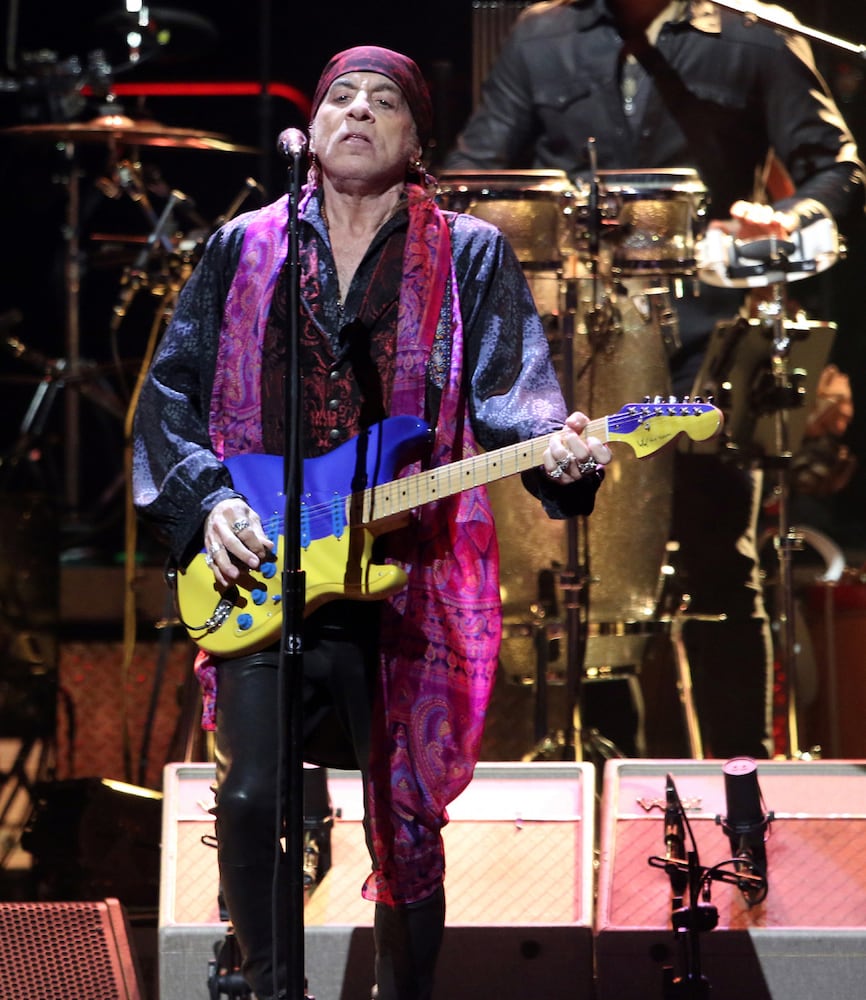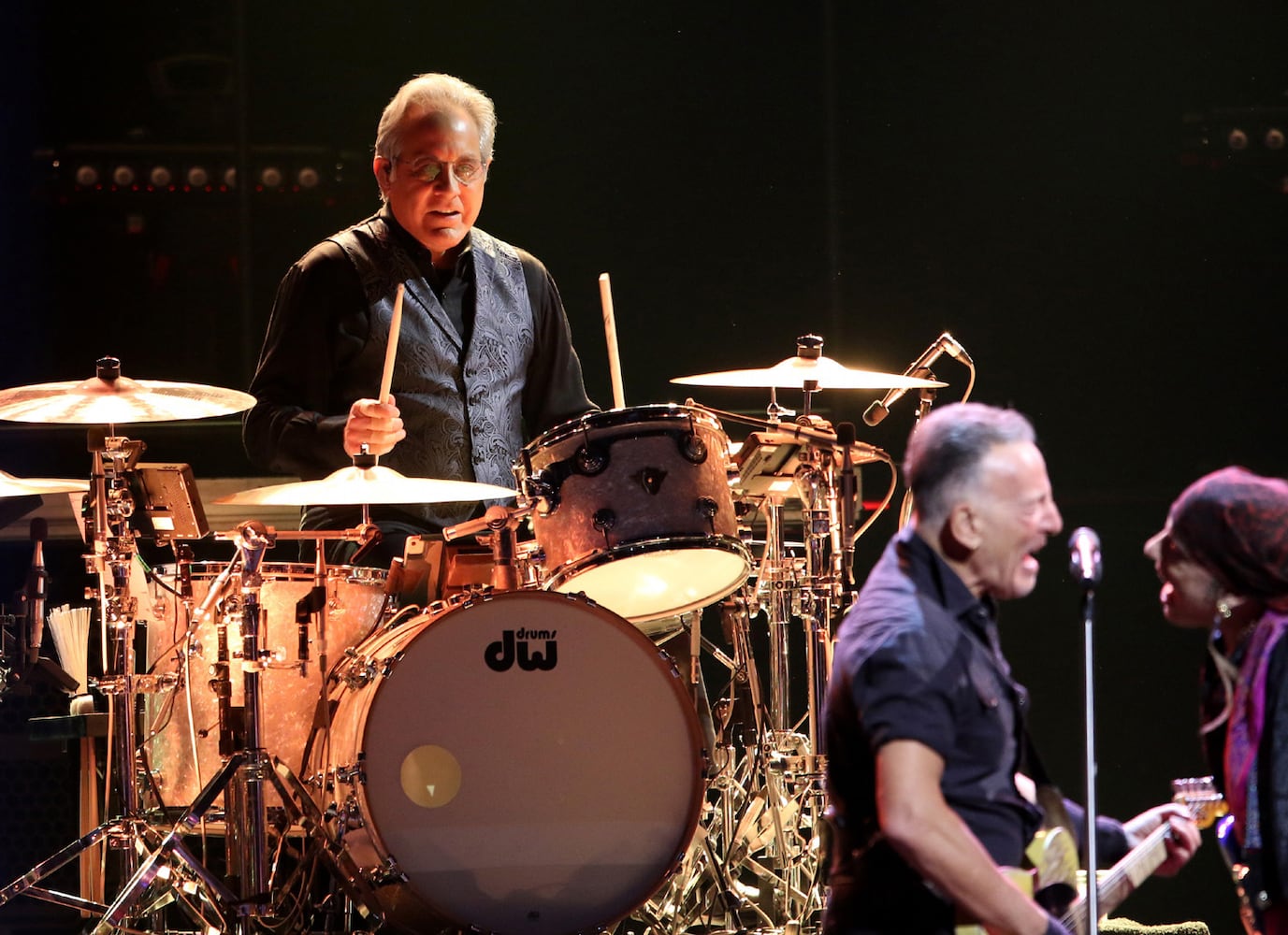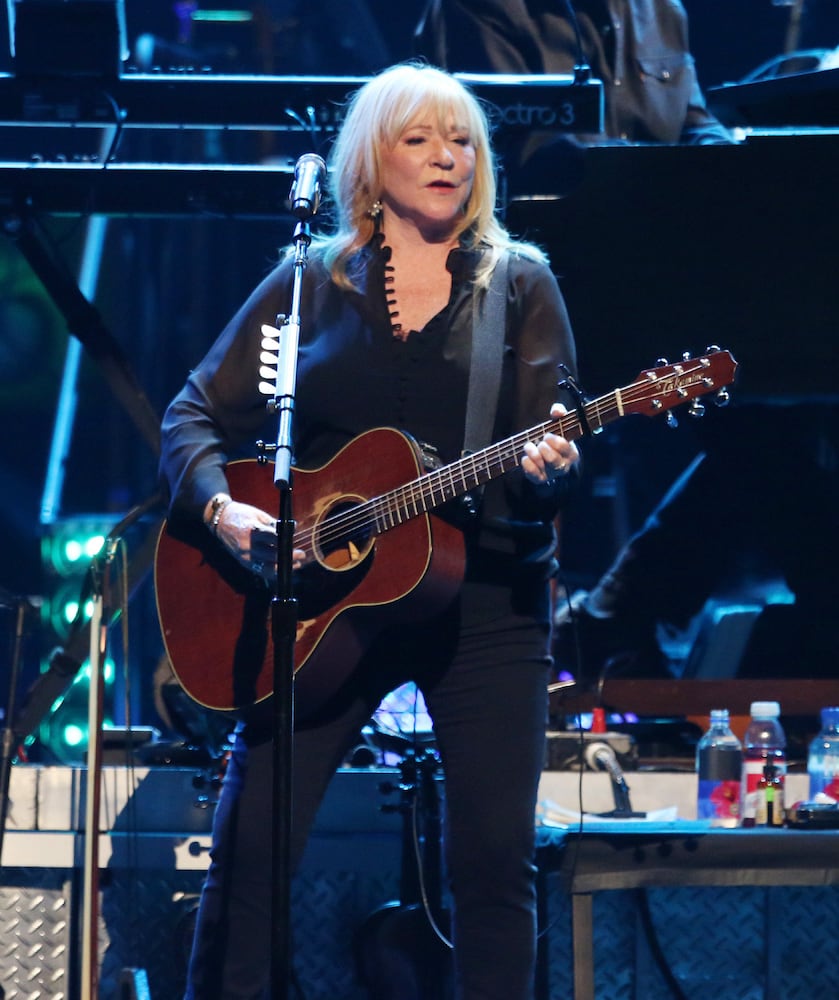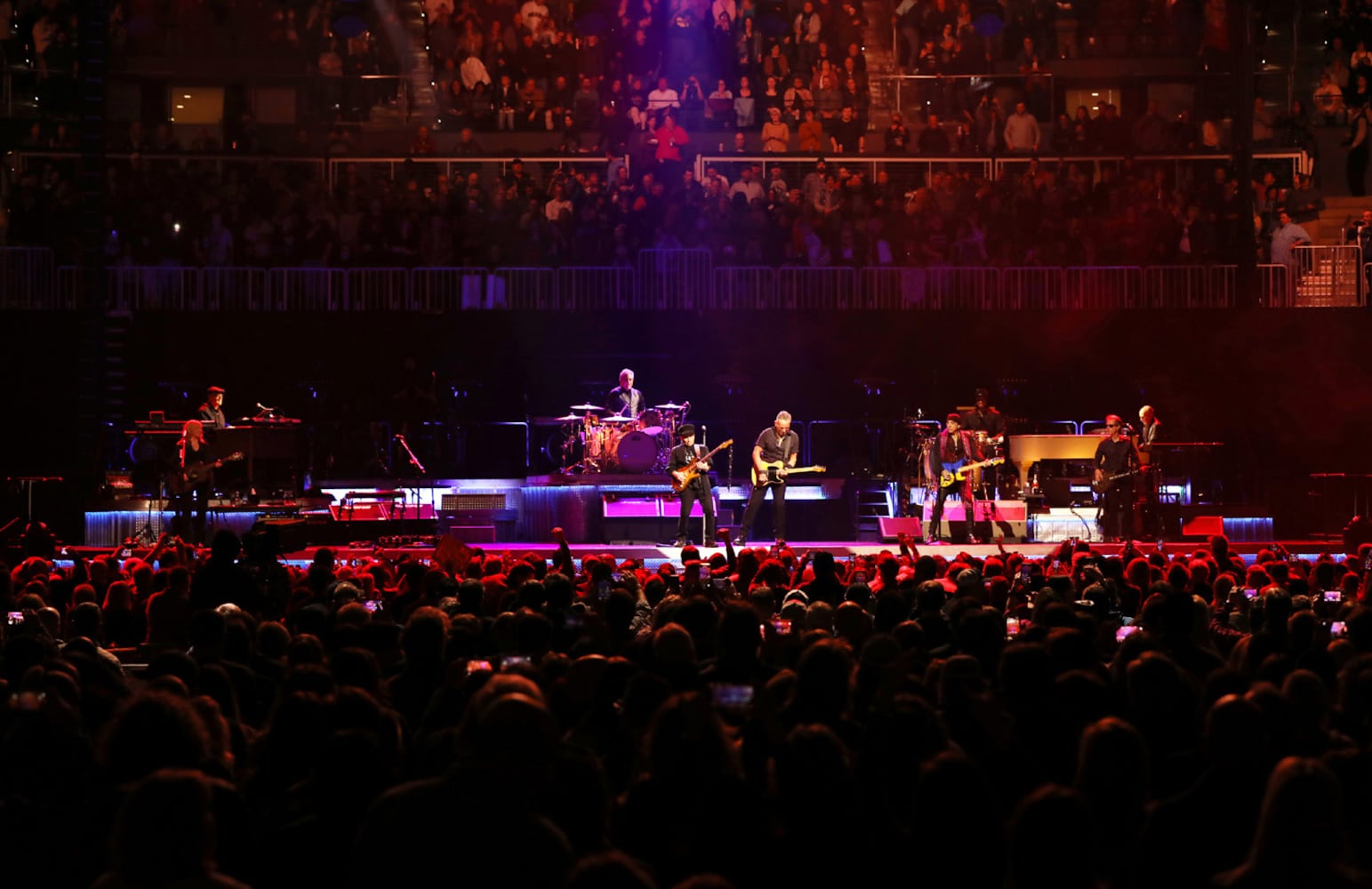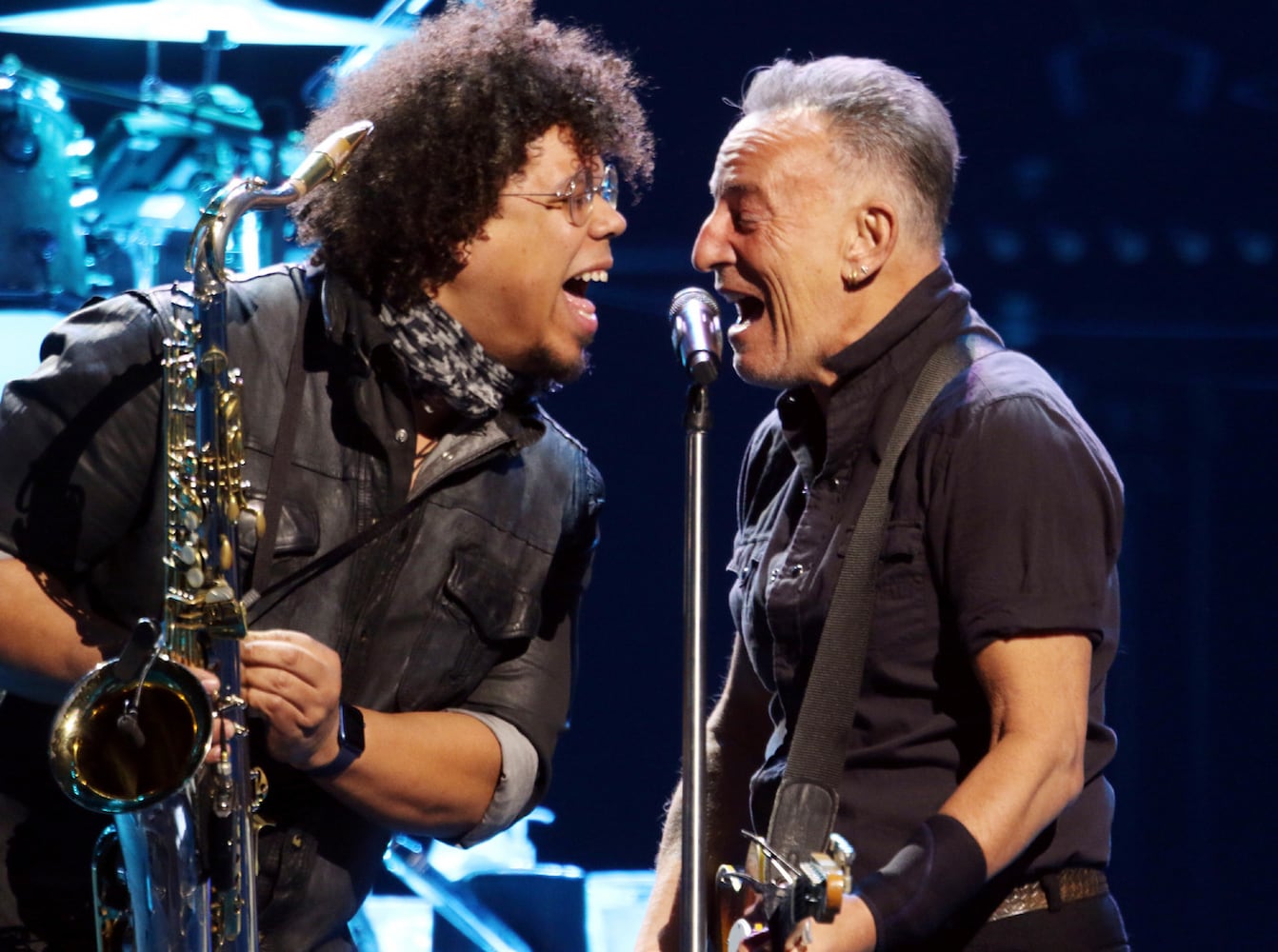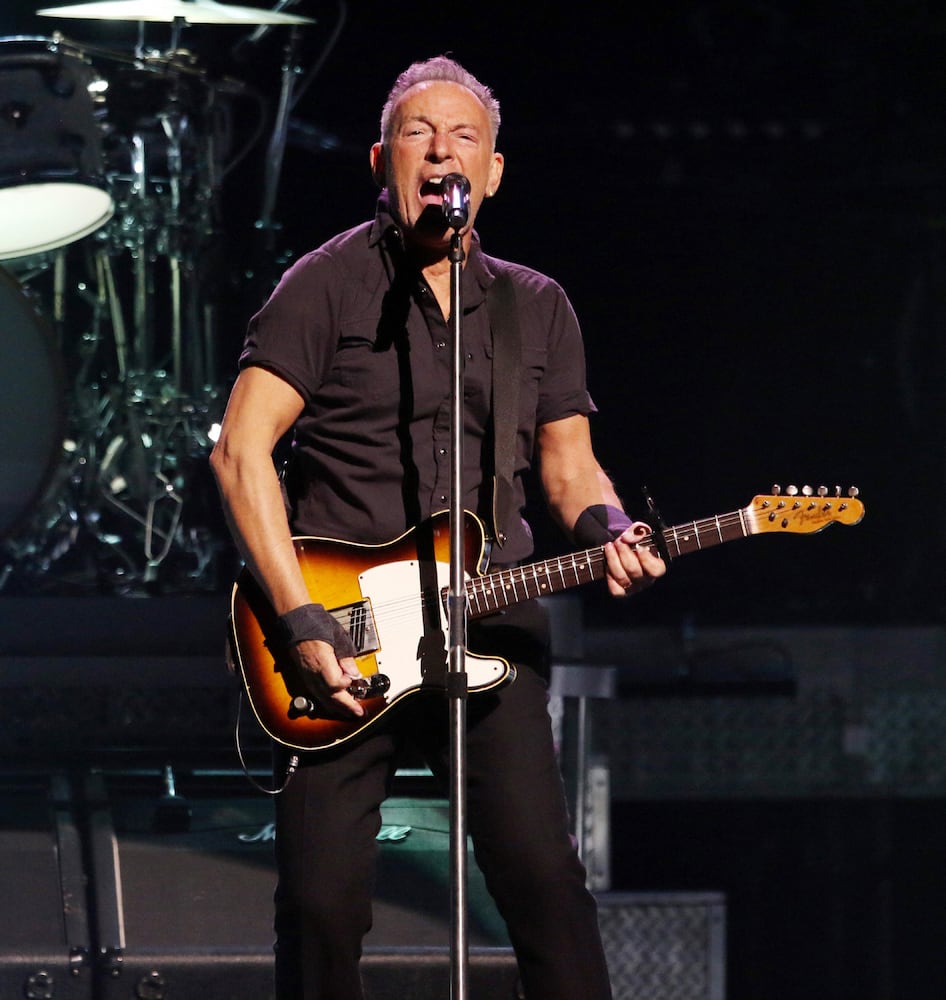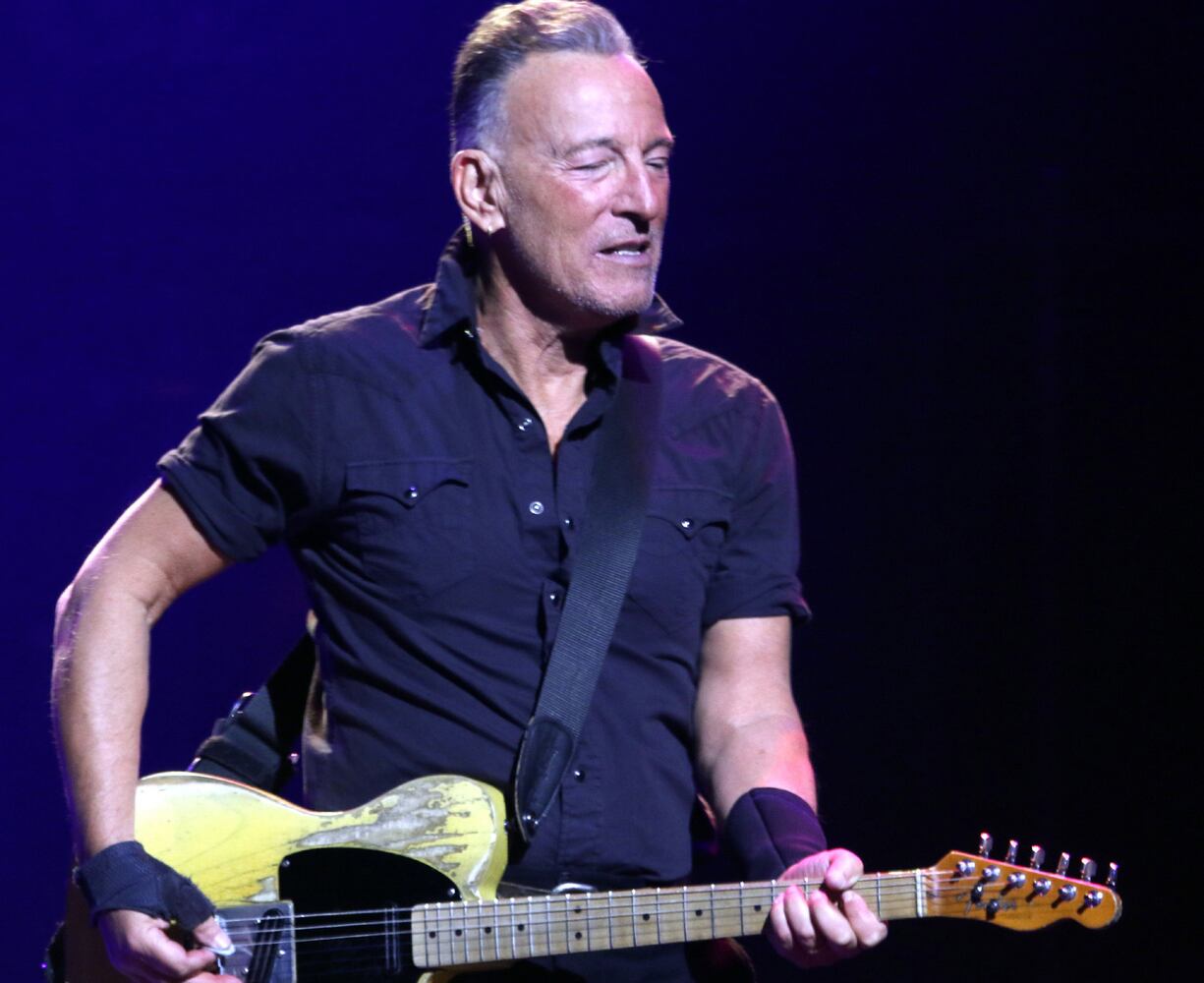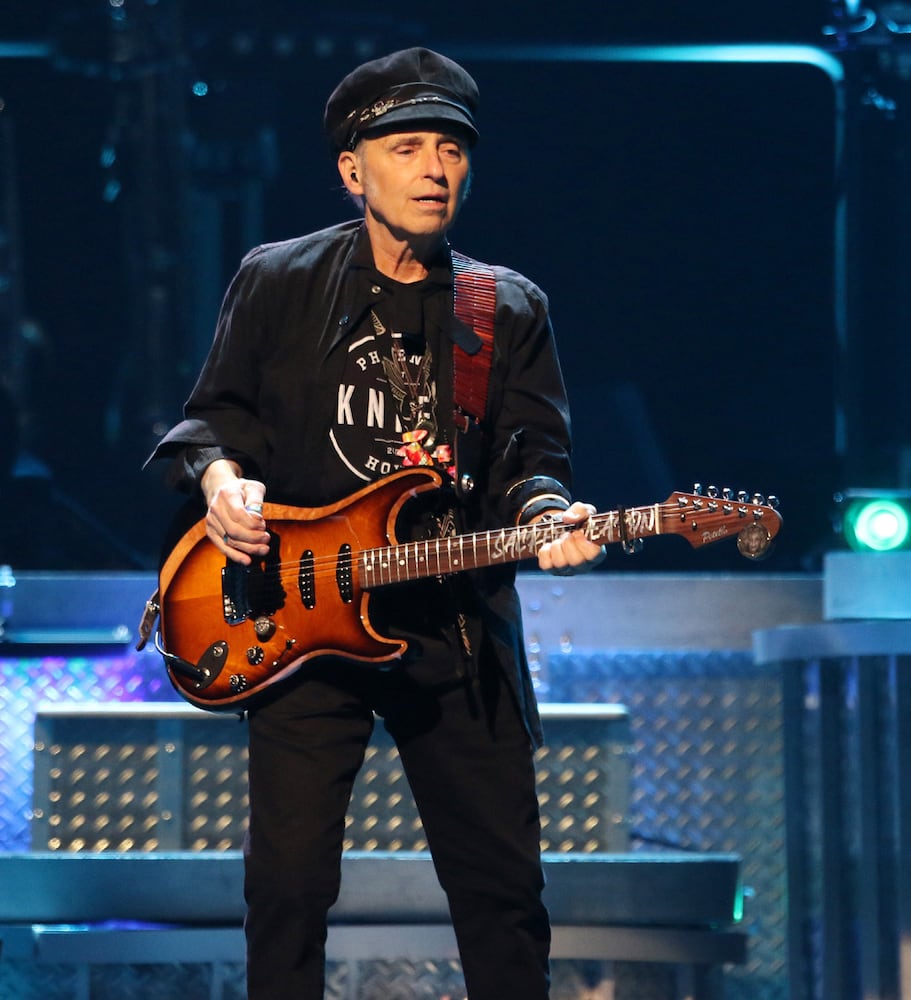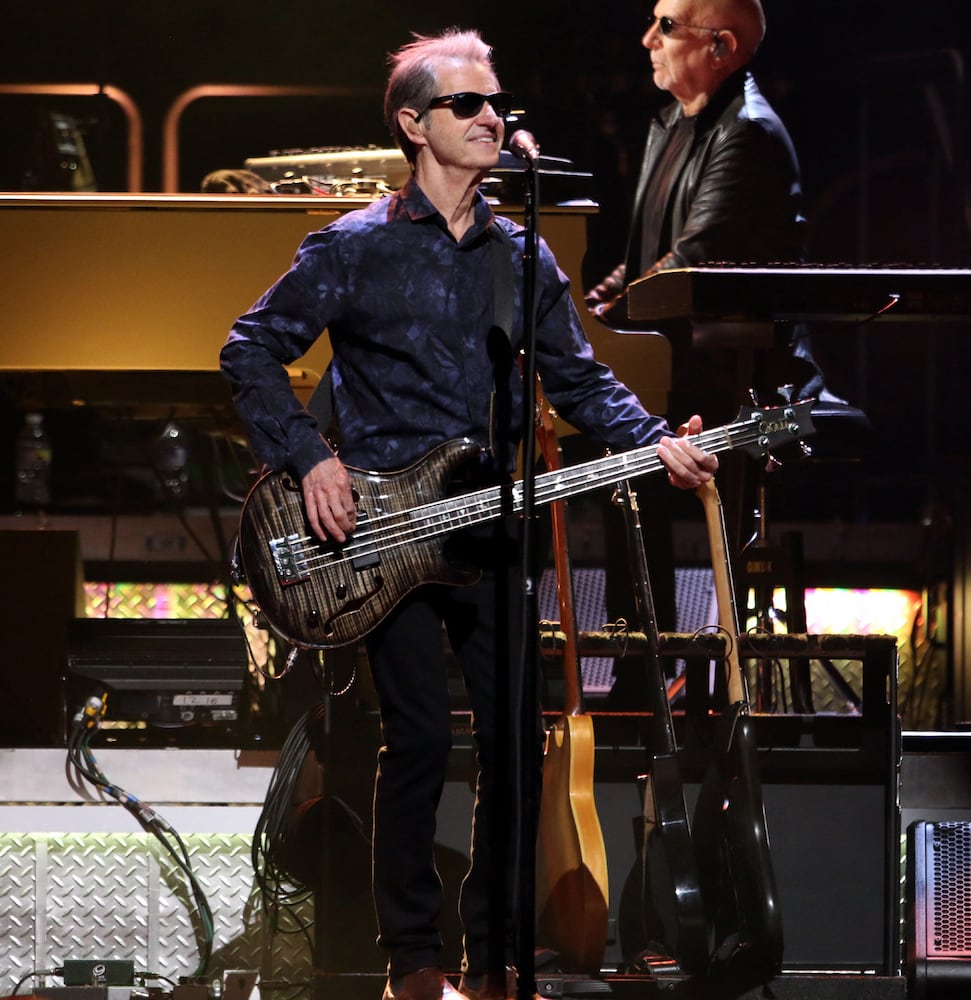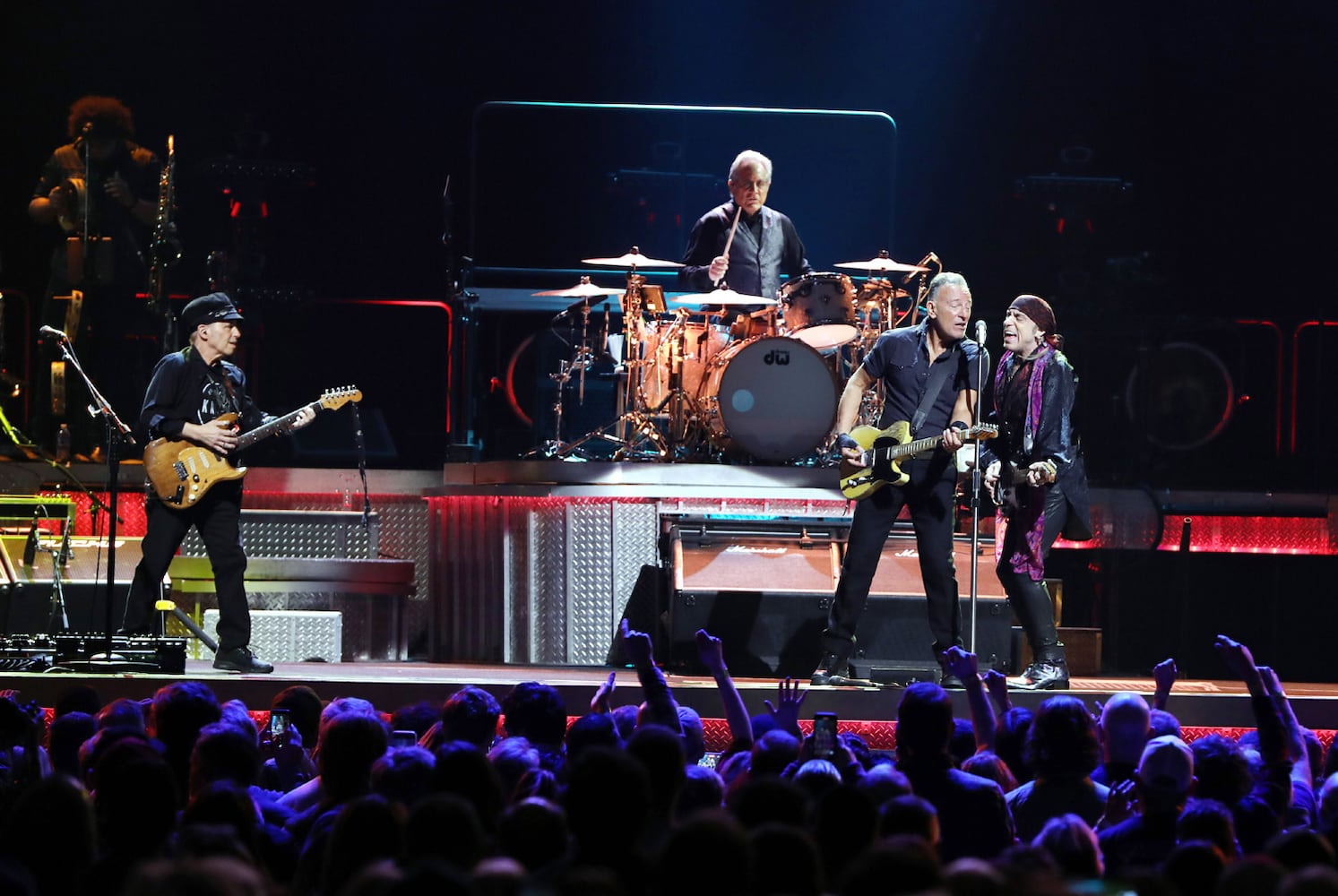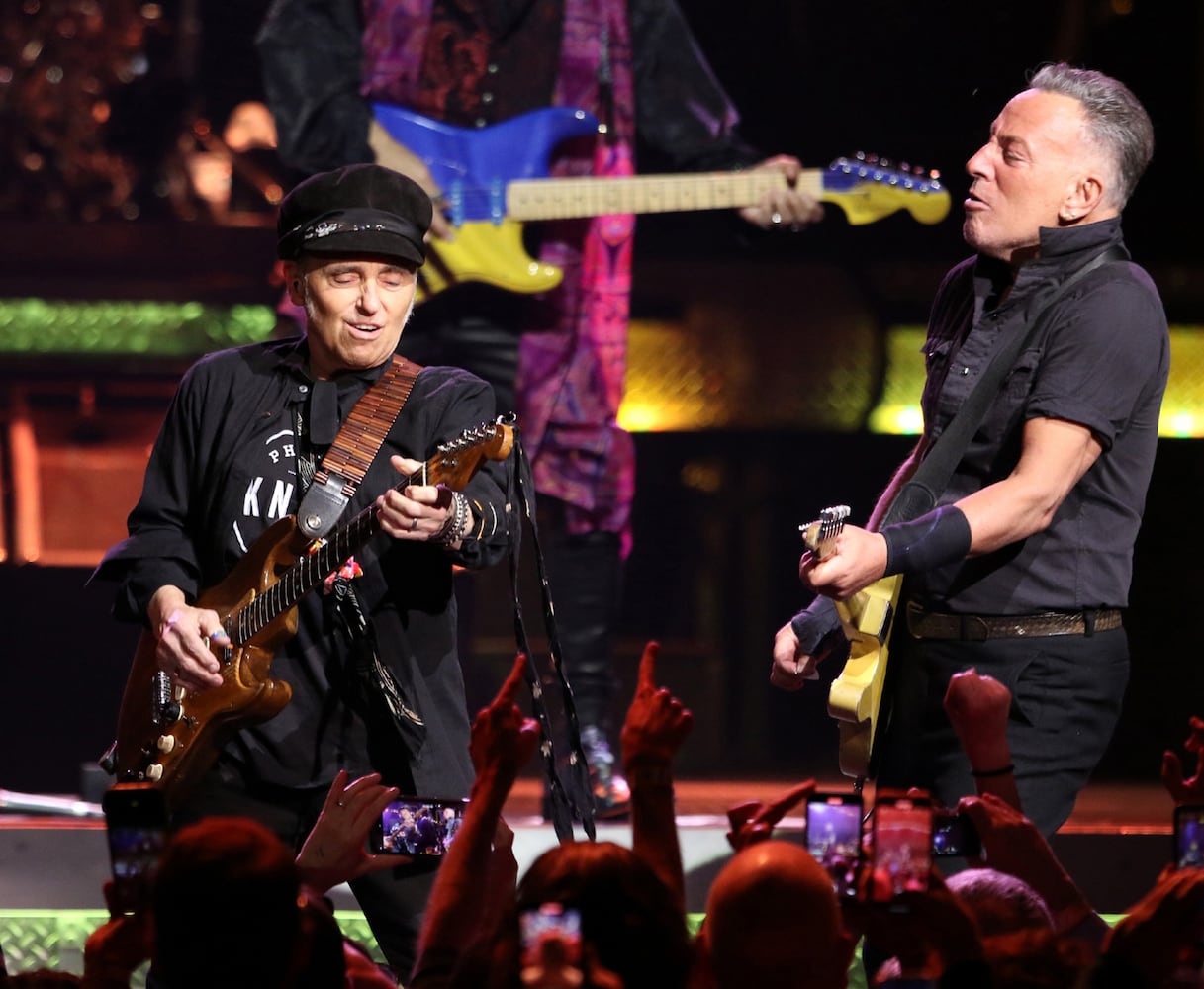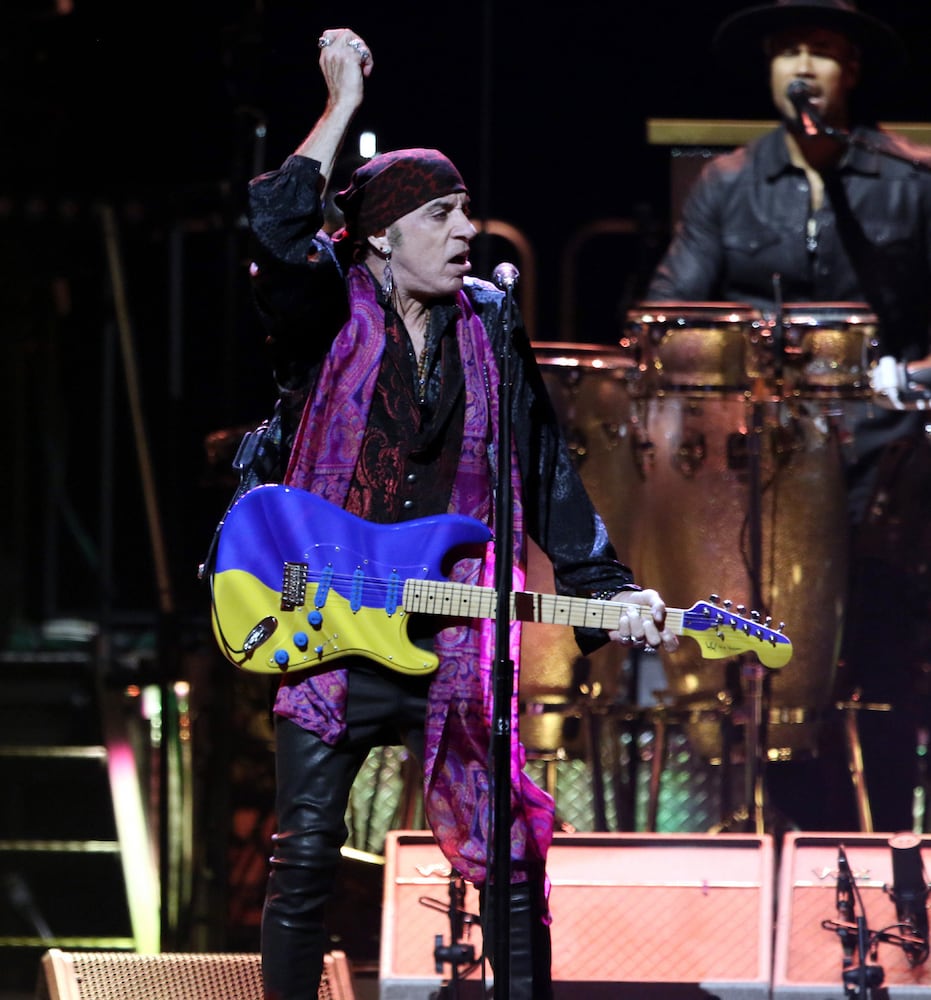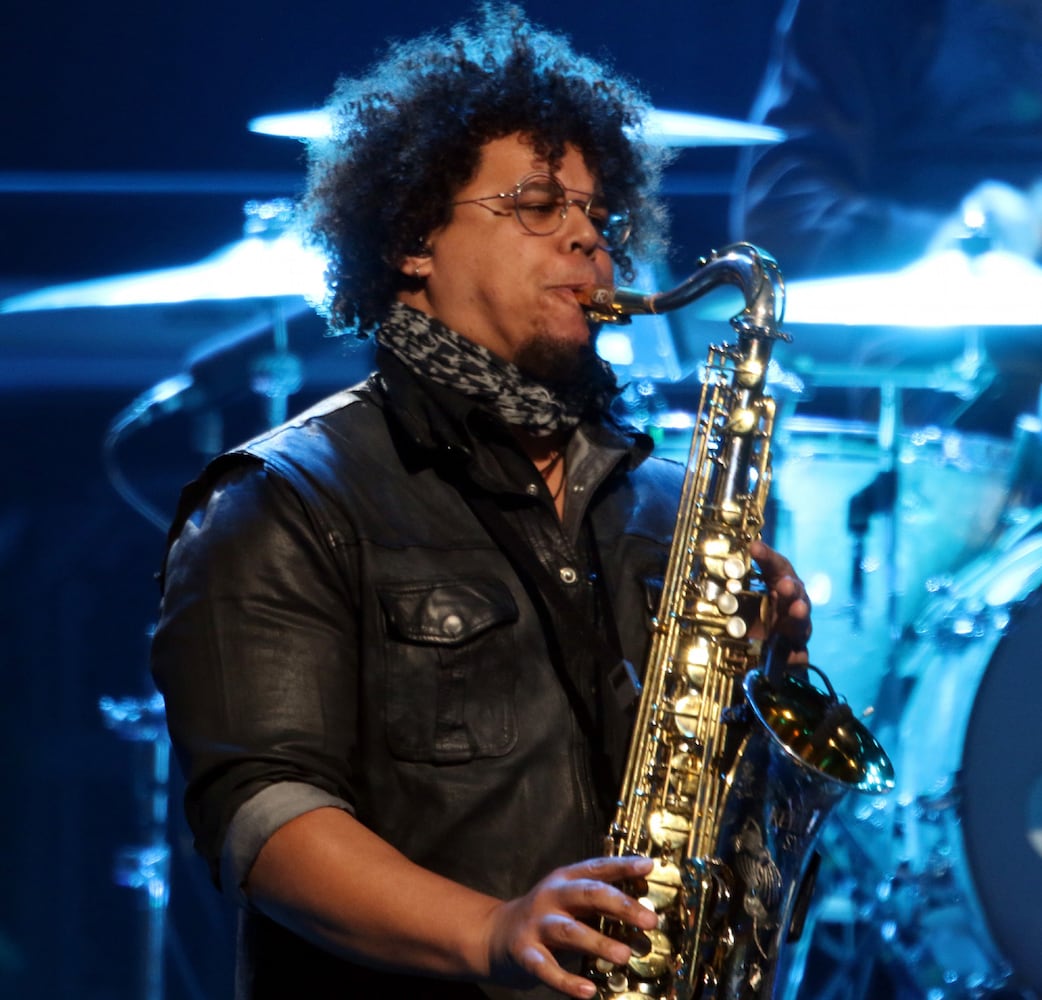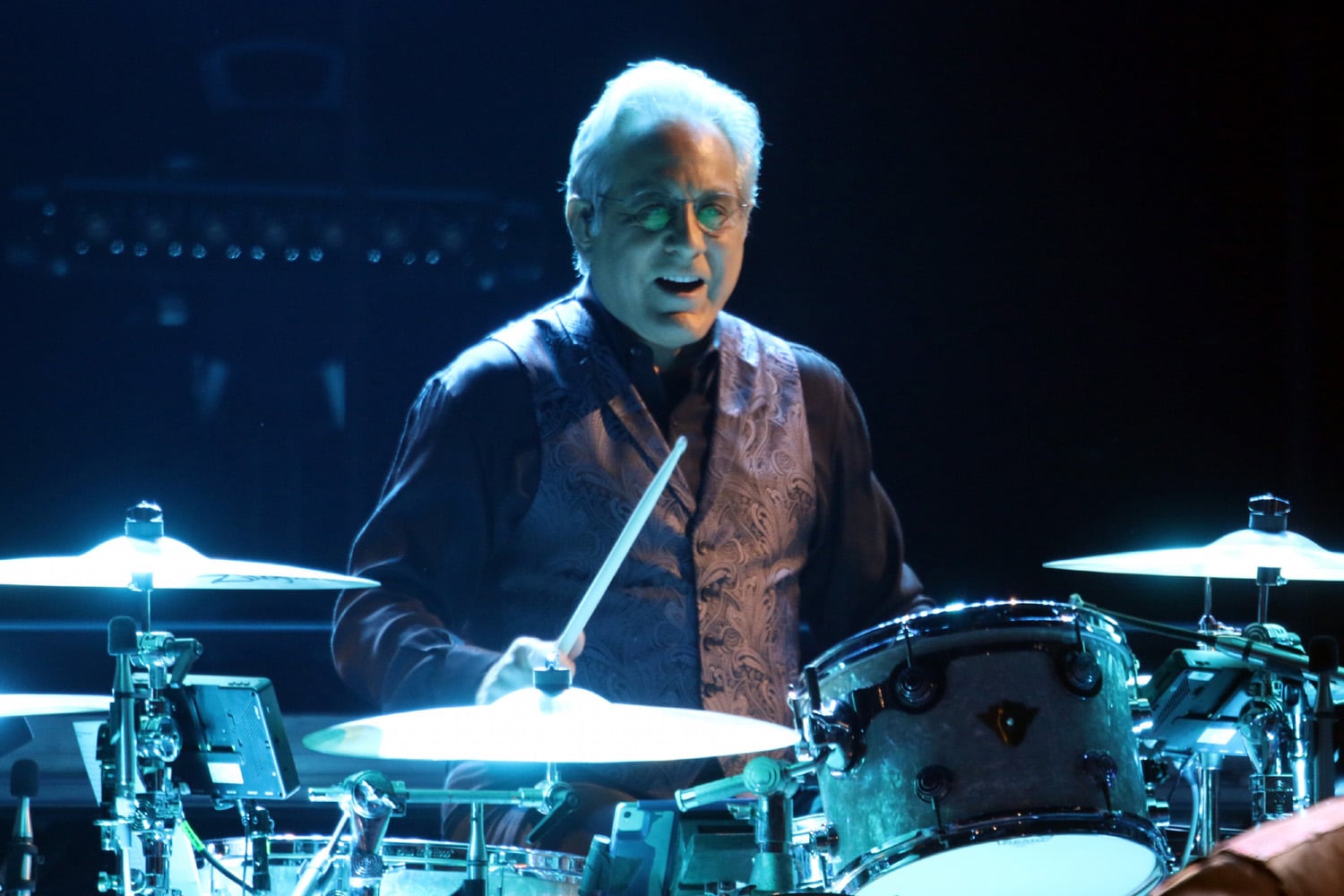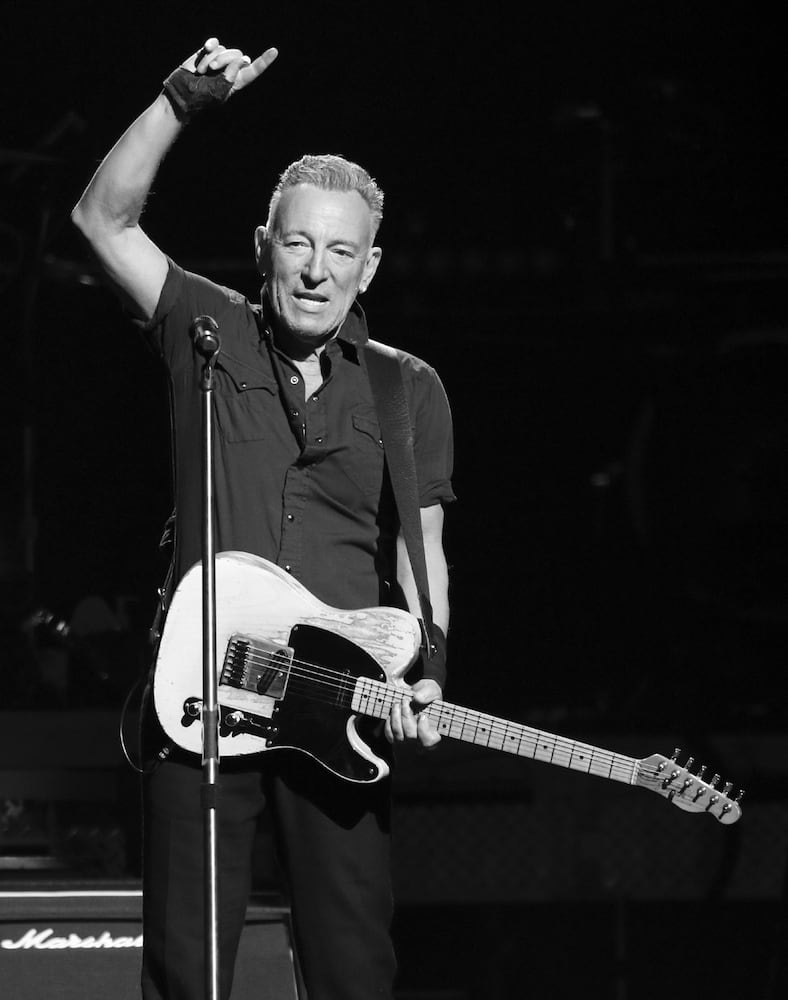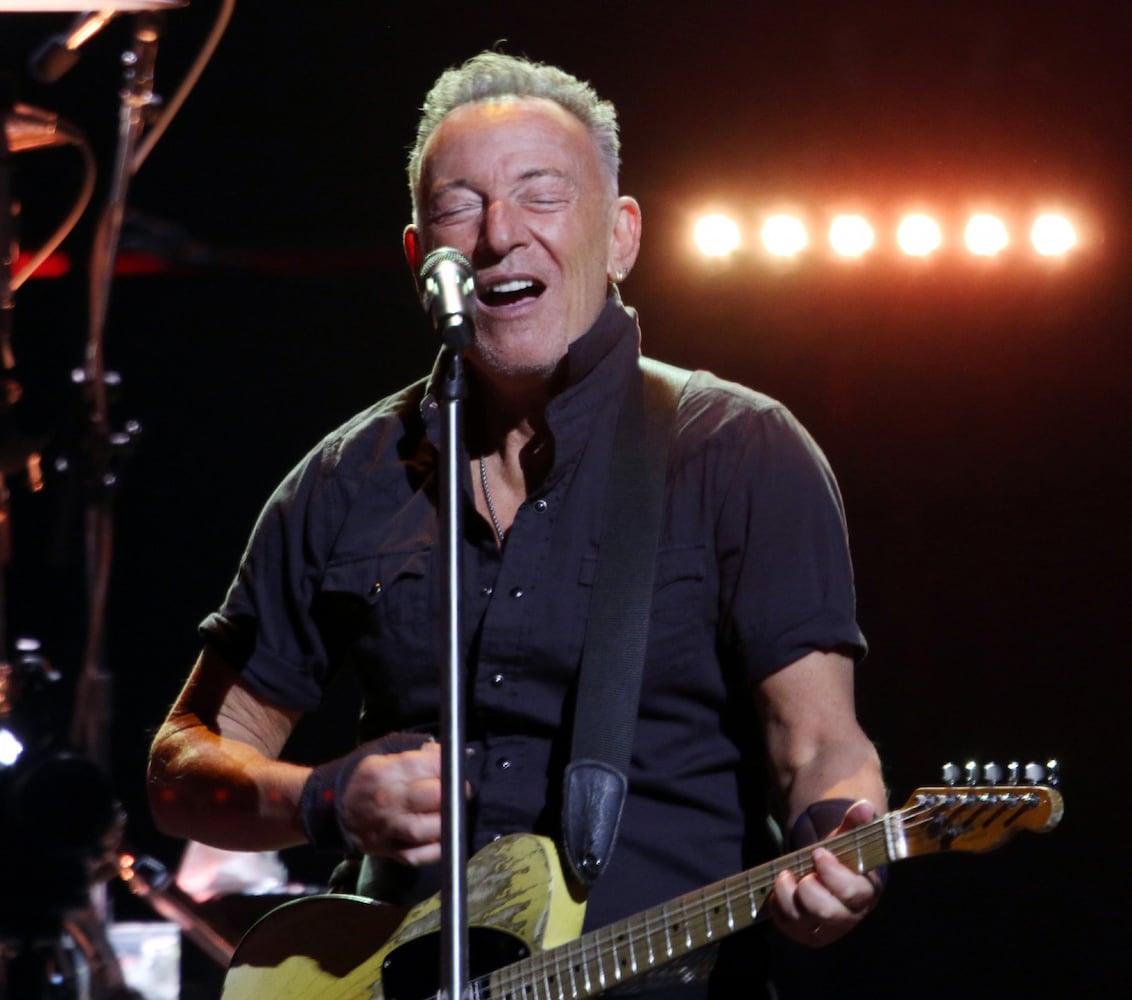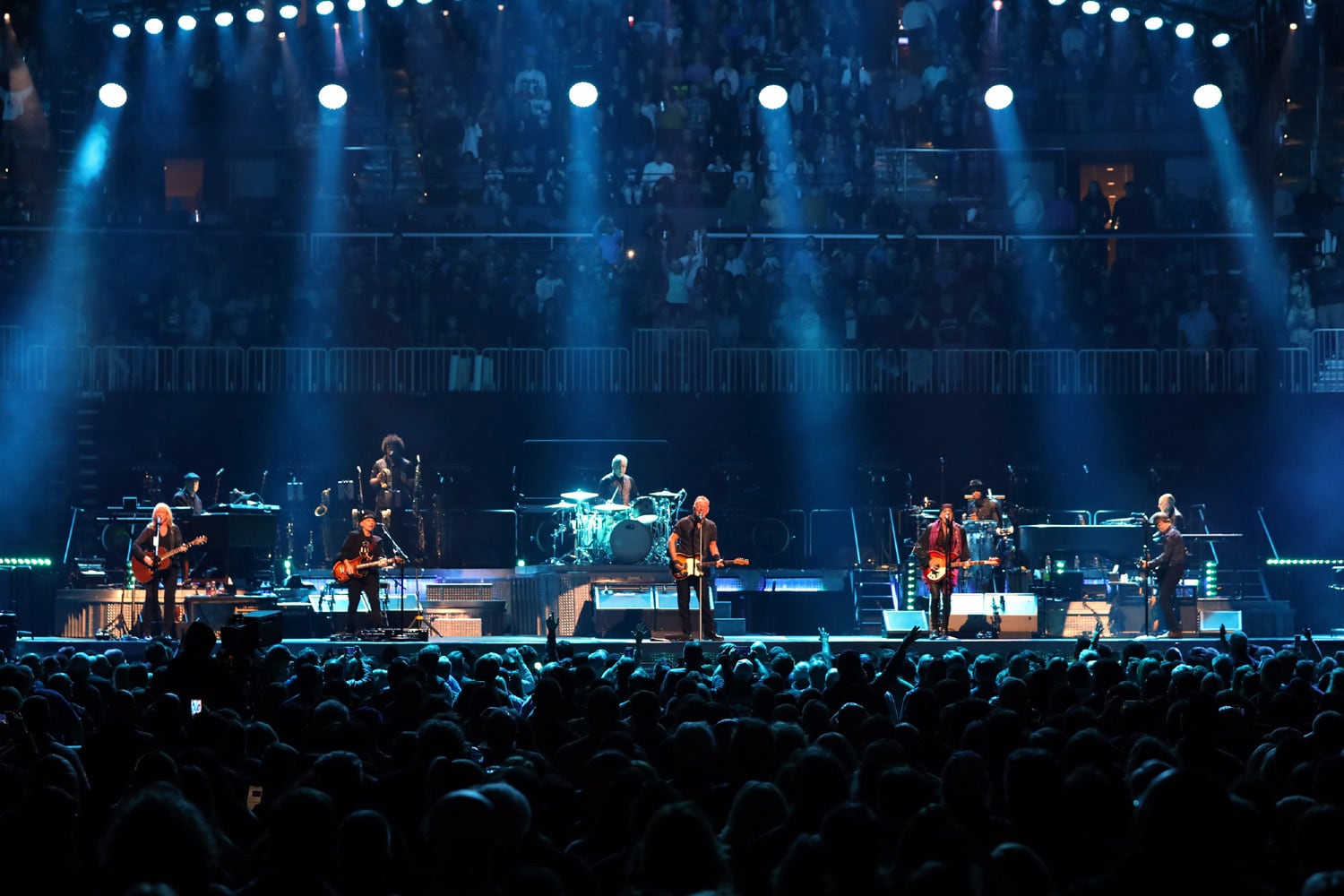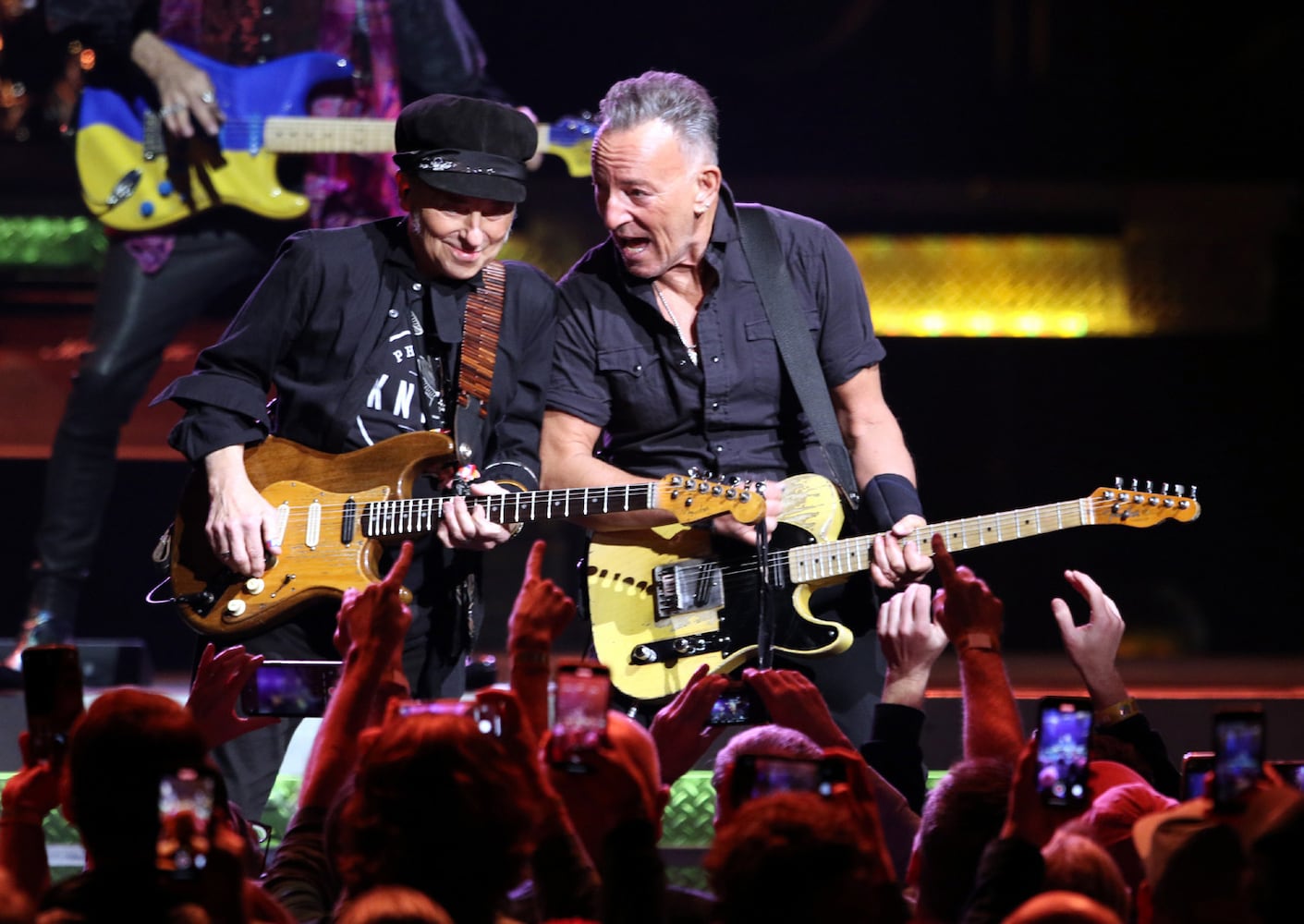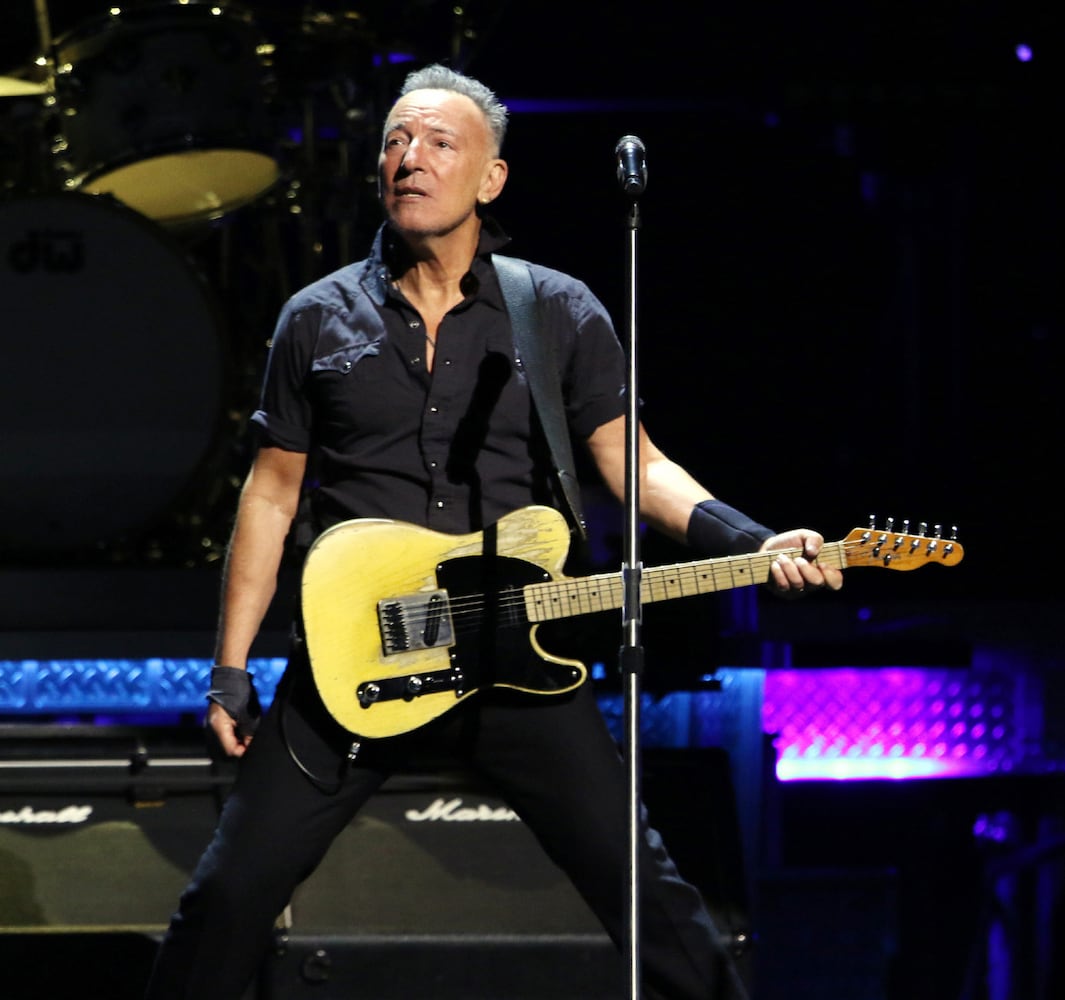Bruce Springsteen’s opening song for his sold-out concert date in Atlanta at State Farm Arena on Friday night was, in effect, the theme for the entire night: “No Surrender.”
The plaintive cut from his 1984 “Born in the USA” album represented the 73-year-old rock legend’s opening salvo against the relentless scourge of time and inevitable confrontation with mortality.
A bit grayer than he was last time he was in town, he remained an indefatigable, centrifugal force on stage, emanating enough energy to light up the entire Jersey Shore. His voice remained rock-solid, never wavering from its core purpose: to reach inside the hearts of every attendee and elicit a spectrum of emotions, be it pure joy (”Kitty’s Back”), a wee bit of melancholy (a cover of the Commodores’ “Night Shift”) or spiritual inspiration (”The Rising”).
He was also trying to extinguish the sour taste from last summer when he allowed Ticketmaster to offer “dynamic” ticket pricing, causing prices for the tour’s hottest tickets to skyrocket past $5,000, a brouhaha that made him look more like a scalper than a working-class hero. The publicity got so bad, Ticketmaster publicly released data in his defense, noting that only 11.2% of tickets were variably priced and just 1.3% were sold for $1,000 or more.
Springsteen was not apologetic in an interview with Rolling Stone in November, arguing that most of the tickets were affordable. As for the best seats in the house, if he priced those seats too low, he said, “the ticket broker or someone is going to be taking that money. I’m going, ‘Hey, why shouldn’t that money go to the guys that are going to be up there sweating three hours a night for it?’ "
Credit: Robb Cohen for the Atlanta Journal-Constitution
Credit: Robb Cohen for the Atlanta Journal-Constitution
Indeed, Springsteen has been known for decades as a man who could stay on stage longer than any other rocker in his peer group, once hitting four hours and six minutes in Helsinki, Finland, in 2012. This go-around didn’t quite reach the three hours he referenced to the magazine, but Springsteen stayed on stage an impressive two hours and 45 minutes without a bathroom break. (In comparison, fellow 73-year-old Billy Joel clocked in at two hours and 10 minutes at Mercedes-Benz Stadium this past November while 74-year-old Stevie Nicks performed for two hours at Ameris Amphitheatre last October.)
Springsteen’s 28-song set list for Atlanta was heavily weighted toward his early years, much to the delight of the hardcore fans. He happily leaned into a dozen crowd-pleasing songs from three seminal 1970s albums: “Born to Run,” “The Wild, the Innocent & the E Street Shuffle” and “Darkness on the Edge of Town.”
He gave the crowd plenty of room to sing along, often directing the mic in the air and gleefully feeding off the love that came right back to him. He attacked the harmonica with gusto during “Promised Land.” He and guitarist Steven Van Zandt shared a single mic thick as thieves for parts of “Prove It All Night.” He sang directly to the concertgoers behind him for a portion of “Out on the Street.” He gave every band member a moment in the sun, especially saxophonist Jake Clemons, who provided the crowd a bonus jolt every time he stepped out front for a solo, honoring his late uncle Clarence Clemons who always seemed to hover nearby in spirit with his signature grin.
Credit: Robb Cohen for the Atlanta Journal-Constitution
Credit: Robb Cohen for the Atlanta Journal-Constitution
And as his wont, Springsteen made a couple of set changes from opening night in Tampa two nights before, subbing out “Brilliant Disguise” and “Burnin’ Train” with fan favorites “Thunder Road” and “Darlington County.”
He only overlapped seven songs from his 2014 Atlanta stop at Lakewood Amphitheatre and 11 songs from the 2016 stop at Philips Arena, which included all 20 cuts from 1980′s double album “The River.” That last tour may be why Springsteen chose to ignore “The River” except for “Out on the Street.”
Credit: Robb Cohen for the Atlanta Journal-Constitution
Credit: Robb Cohen for the Atlanta Journal-Constitution
He said very little to the crowd until he introduced his 14th song of the night, “Last Man Standing.” Springsteen at that juncture told a story about his first band he joined when he was 15 years old in 1965 with fellow teen George Theiss. A half-century later, he said he was by Theiss’ hospital bed and realized Theiss’ pending death would make him the last living member of that original group.
“That will give you pause to think,” he said. “It’s like you’re standing on the tracks with a white hot light of an oncoming train bearing down on you. It gives a certain clarity of thought and purpose. Death’s great gift is expanding vision so I went home and George passed away and about a week after he died, I wrote this song.”
“At 15,” he continued, “it’s all about tomorrows, it’s all hellos. At 73? It’s more goodbyes. It makes you realize how important living right now is.”
Springsteen couldn’t have been more present during that song, ruminating on those early days and how he ended up where he is today. “Flock of angels lift me somehow,” he sang. “Somewhere high and hard and loud. Somewhere deep into the heart of the crowd. I’m the last man standing now.”
While he could have easily filled the much larger (but less acoustically pleasant) Mercedes-Benz Stadium, he chose the relatively more intimate arena setting. He sold seats behind the stage as well, squeezing in about 21,000 people. This meant an open stage with three screens above him, allowing him to literally be surrounded in all directions.
After “Thunder Road,” the band gathered and took a quick bow but didn’t leave the stage for the artifice of an encore. Instead, all the lights came up in the arena for the final six songs so the concert became as much about the audience as it was about the musicians. Fans could be seen dancing gleefully in the aisles to “Born to Run,” “Glory Days” and “Dancing in the Dark,” a trifecta of classic songs even the casual fan could mouth along to. (Before the encores, he largely eschewed his big radio hits, the ones that were ubiquitous on top 40 radio in the 1980s.)
Credit: Robb Cohen for the Atlanta Journal-Constitution
Credit: Robb Cohen for the Atlanta Journal-Constitution
And while Springsteen placed politics on ice this particular night, he did give a specific shout out, asking fans to donate to the Atlanta Community Food Bank.
Right before “Tenth Avenue Freeze-Out,” he donned a leather jacket with the words “”Wild and Innocent” embossed on the back and ventured into the crowd. He gave fans an extra thrill by performing on a tiny mini-stage that was built between the standing-room crowd that took up the front third of the floor and those who had paid to have seats they hardly used the entire evening.
He then settled down for his final song: a quiet solo acoustic farewell dubbed “I’ll See You In My Dreams,” Springsteen’s hopeful take on losing friends and family: “Yeah, up around the river bend/For death is not the end/And I’ll see you in my dreams.”
Credit: RODNEY HO/rho@ajc.com
Credit: RODNEY HO/rho@ajc.com
About the Author
Keep Reading
The Latest
Featured
